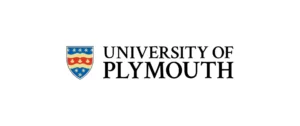Aston University, located in the heart of Birmingham, England, is a forward-thinking public research university renowned for its focus on employability, innovation, and inclusivity. Founded in 1895 as the Birmingham Municipal Technical School, it gained university status in 1966 and has since established itself as a leader in business, engineering, and health sciences. With over 18,000 students from more than 120 countries, Aston is celebrated for its diverse community, industry-aligned courses, and exceptional graduate outcomes, ranking in the UK’s top 25 for graduate prospects (The Times Good University Guide 2025). Its single campus in Birmingham’s city centre, combined with international study centres in Singapore and Oman, offers a dynamic environment for academic and professional growth. This guide provides a comprehensive overview of Aston University, covering its campus, academic programmes, rankings, facilities, and more, making it an essential resource for international students.
History and Evolution
Aston University’s origins trace back to 1895, when it was established as the Birmingham Municipal Technical School to meet the industrial needs of the Midlands. It became the UK’s first College of Advanced Technology in 1956, reflecting its focus on applied sciences and engineering, before receiving its Royal Charter as Aston University in 1966. Named after the Aston area of Birmingham, the university has grown from a technical institute into a global leader, earning accolades like the Queen’s Anniversary Prize for applied research (2020). Its commitment to ‘forward thinking’ is evident in its Triple Crown-accredited Aston Business School and pioneering programmes like the first UK medical school to admit only international students (Aston Medical School, 2018). Despite debates over its smaller research profile compared to Russell Group universities, Aston’s emphasis on employability and diversity has solidified its reputation.
Campus of Aston University
Aston University operates a single, compact campus in Birmingham’s city centre (B4 7ET), with international study centres in Singapore (Aston Global Study Centre) and Oman (Muscat University partnership). The Birmingham campus is the heart of its operations, offering a modern, urban environment with all facilities within walking distance.
Birmingham Campus
Located in the vibrant Gosta Green area, the Birmingham campus spans 60 acres and serves over 18,000 students. Just a 10-minute walk from Birmingham New Street station and 90 minutes from London by train, it’s ideally positioned for urban and international connectivity. Key features include:
-
Facilities: The Aston Library, with 24/7 access during term time, offers over 500,000 books, e-journals, and 1,200 study spaces. Specialist labs for engineering, optometry, and medical sciences include the UK’s only Brain Centre for neuroscience research. The Aston Business School’s Bloomberg Trading Suite and the Aston Medical School’s simulation suites provide industry-standard training. The Woodcock Sports Centre offers a gym, swimming pool, and courts.
-
Accommodation: Over 2,100 rooms in halls like James Watt, William Murdoch, and Lakeside, with en-suite and shared options from £130–£190 per week, including Wi-Fi, utilities, and gym membership. First-year students are guaranteed accommodation if they apply by the deadline. Private rentals nearby average £500–£700 per month.
-
Student Life: A multicultural hub with over 130 societies (e.g., Pakistani Society, Aston Entrepreneurs) and sports clubs, from football to taekwondo. The Students’ Union hosts events like Freshers’ Fortnight, Diwali celebrations, and the Aston Awards. Birmingham’s cultural scene—Bullring shopping, Michelin-starred restaurants, and music venues—is steps away.
The campus’s urban setting and modern facilities create a lively atmosphere, though some students note parking limitations and higher living costs in Birmingham compared to smaller cities.
International Study Centres
-
Singapore (Aston Global Study Centre): Partners with institutions like Kaplan to offer business and management courses, focusing on Asia-Pacific markets. Facilities include modern classrooms and career support, with a smaller student cohort.
-
Oman (Muscat University Partnership): Delivers engineering and business programmes, leveraging Oman’s strategic location. The centre is compact, with seminar-based teaching and no on-campus housing.
These centres offer UK-accredited degrees in regional contexts but have fewer facilities and extracurriculars compared to Birmingham. They suit students seeking international study with a focus on specific disciplines.
Academic Offerings and Courses
Aston University offers over 150 undergraduate and postgraduate programmes across three colleges, designed for employability and accredited by bodies like the Association to Advance Collegiate Schools of Business (AACSB) and the General Medical Council. The colleges are:
-
College of Business and Social Sciences: Home to the Triple Crown-accredited Aston Business School (1% of global business schools), offering business management, accounting, law, and politics. The LLM Legal Practice Course and MSc Business Analytics are highly regarded.
-
College of Engineering and Physical Sciences: Engineering (chemical, mechanical, electrical), computer science, mathematics, and applied chemistry, with strengths in photonics and cybersecurity.
-
College of Health and Life Sciences: Aston Medical School (MBChB for international students), optometry, pharmacy, audiology, and neuroscience, supported by the Brain Centre and clinical placement networks.
Unique offerings include the UK’s first BSc in Cyber Security and the Integrated Master’s in Pharmacy. Foundation years, pre-sessional English courses, and degree apprenticeships cater to diverse learners. Over 70% of programmes include optional professional placements, with partnerships at companies like Airbus and HSBC. Online postgraduate courses, such as the MSc in Artificial Intelligence, provide flexibility. Aston’s focus on practical skills ensures 81% of graduates secure professional or managerial roles within six months (HESA 2023).
Rankings and Reputation
Aston University is a teaching-intensive institution with a strong research profile, earning a Silver rating in the Teaching Excellence Framework (2023). Recent rankings include:
-
QS World University Rankings 2025: 423rd globally, 25th in the UK.
-
The Times Good University Guide 2025: 25th in the UK, up 10 places from 2024, with top 10 rankings for accounting and finance, and chemical engineering.
-
Research Excellence Framework 2021: 79% of research rated world-leading or internationally excellent, with strengths in health and business.
-
Graduate Prospects: Top 25 UK for graduate employability (The Times Good University Guide 2025), with Aston Business School ranked 12th globally for career progress (Financial Times 2024).
Students praise Aston’s placement opportunities and supportive faculty, with facilities like the Bloomberg Trading Suite enhancing learning. However, its global ranking (423rd) lags behind research-heavy universities, and some StudentCrowd reviews note library crowding during exams. Aston’s diversity (40% of students from ethnic minorities) and employability focus are major strengths.
Tuition Fees and Cost of Living
Tuition fees for 2025 are:
-
Undergraduate:
-
UK Students: £9,250 per year.
-
International Students: £18,250–£21,500 per year, with medical programmes up to £46,998.
-
-
Postgraduate:
-
UK Students: £8,500–£12,000 per year.
-
International Students: £17,750–£22,750 per year, with MBAs at £25,750.
-
-
Living Costs: £10,224–£12,500 for 9 months, including accommodation (£130–£190/week), food, transport, and entertainment. Birmingham’s cost of living is lower than London but higher than smaller cities like Canterbury.
Scholarships include the Aston Global Scholarship (£5,000 for international undergraduates), Vice-Chancellor’s Scholarship (£8,000 over three years), and Aston Medical School Bursaries (up to £7,500). Part-time work (up to 20 hours per week for international students) via Aston’s JobShop offers roles in retail, hospitality, or on-campus positions like student ambassador, with wages of £11.50–£15/hour.
Admission Requirements
Aston’s admission process is moderately selective, with a 67% acceptance rate. General entry requirements for 2025 include:
-
Undergraduate:
-
Five GCSEs at grade C/4 or above, including English and Maths.
-
Three A-Levels (e.g., ABB–AAA) or equivalent, such as Standard XII (70% all boards) for international students.
-
Foundation programmes for lower qualifications.
-
-
Postgraduate:
-
A 2:2 honours degree or equivalent (e.g., 60% in a recognised bachelor’s degree).
-
Work experience for mature applicants via Recognition of Prior Learning.
-
-
English Proficiency:
-
IELTS: 6.0 overall (no band below 5.5) for most programmes; 7.0 for medicine and optometry.
-
Alternatives: TOEFL, PTE, or Aston’s pre-sessional English courses.
-
Applications are via UCAS for undergraduates (deadline: 29 January 2025 for September intake) or the university’s portal for postgraduates. International students must provide academic transcripts, a personal statement, and proof of financial support for the Student Visa. Contextual admissions support underrepresented groups. Decisions take 2–4 weeks. Book a free consultation with Universitio for application support.
Student Support and Campus Life
Aston prioritises student welfare with comprehensive services:
-
Academic Support: Personal tutors, study skills workshops, and the Learning Development Centre for academic writing and maths support. The Aston Library’s digital resources include Bloomberg and SPSS.
-
Career Services: JobShop, careers fairs, and the Careers and Placements Team offer CV workshops, mock interviews, and placement support. The Aston Global Advantage programme enhances employability skills.
-
Wellbeing: Free counselling, disability support, and the Aston Medical Centre. The multifaith chaplaincy and Wellbeing App provide 24/7 support.
-
International Support: Visa advice, airport pickups, and orientation programmes. The International Student Society hosts cultural events like the Lunar New Year.
Campus life is vibrant, with over 130 societies, from Aston Medics to the Gaming Society, and sports clubs supported by the Woodcock Sports Centre. The Students’ Union runs the Loft bar, markets, and events like the Aston Awards. Birmingham’s cultural diversity—think Digbeth’s street art, Chinatown’s restaurants, and the Symphony Hall—enriches the experience. Some students note urban noise or parking issues, but the campus’s central location is a major draw.
Facilities and Infrastructure
Aston’s £200 million campus investment includes:
-
Aston Library: 24/7 term-time access, 1,200 study spaces, and digital tools like MATLAB and RefWorks.
-
Specialist Labs: Brain Centre for neuroscience, photonics labs for engineering, and clinical simulation suites for medicine and optometry.
-
Business Facilities: Bloomberg Trading Suite, virtual reality labs, and the Aston Professional Education Centre for executive training.
-
Sports and Recreation: Woodcock Sports Centre with a 25m pool, gym, and courts, plus outdoor pitches.
-
Social Spaces: The Students’ Union hub, Loft bar, and Courtyard food outlets.
Accessibility features include wheelchair-friendly paths, Blue Badge parking, and assistive technology in the library. Some students suggest expanding sports facilities to match larger universities like Birmingham.
International Student Experience
With students from over 120 countries, Aston is a global community. Support includes:
-
Visa Guidance: The International Student Support Team ensures compliance with UKVI financial proof requirements.
-
Scholarships: Up to £8,000 via merit-based awards, plus GREAT and Chevening scholarships.
-
Employability: 70% of programmes offer placements with global firms like BMW and Deloitte. JobShop supports visa-compliant part-time work.
-
Cultural Integration: Events like Diwali and International Week, plus language exchange programmes and the Aston Global Advantage module.
The Singapore and Oman centres offer regional study options, though smaller than Birmingham. The city’s diversity (43% of Birmingham’s population from ethnic minorities) and cultural vibrancy make Aston welcoming, though urban living costs require budgeting.
Challenges and Criticisms
-
Living Costs: Birmingham’s expenses (£10,224–£12,500/year) are high, though lower than London’s.
-
Facilities: The Library and sports facilities can feel crowded during peak times, per StudentCrowd reviews.
-
Research Profile: Aston’s global ranking (423rd) trails Russell Group universities, which may matter for PhD students.
-
Urban Setting: City noise and parking constraints can be drawbacks, though campus security and public transport mitigate these.
Aston’s high employability (top 25 UK) and diversity outweigh these concerns for most students.
Why Choose Aston University?
Aston University is ideal for students seeking:
-
Employability: Top 25 UK for graduate prospects, with 70% placement opportunities.
-
Innovation: Triple Crown-accredited business school and pioneering medical programmes.
-
Diversity: 40% ethnic minority students and a global community from 120 countries.
-
Location: Birmingham’s vibrant city centre, 90 minutes from London.
-
Support: Award-winning student services (THE Outstanding Support for Students 2020).
Whether you’re studying business, engineering, or medicine, Aston empowers you to shape your future.
How to Apply
To join Aston University in 2025:
-
Choose a Course: Browse 150+ programmes at www.aston.ac.uk/study/courses.
-
Check Requirements: Verify academic and English criteria (e.g., IELTS 6.0).
-
Apply: Use UCAS for undergraduates or the university’s portal for postgraduates. Submit transcripts, a personal statement, and English scores.
-
Secure CAS: Provide financial proof and deposits (e.g., £2,000 for international students).
-
Apply for a Visa: Use your CAS for a Student Visa.
For expert support, book a free consultation with Universitio.
Conclusion
Aston University is a beacon of innovation and opportunity in Birmingham’s bustling city centre. Its compact campus, world-class facilities, and Triple Crown-accredited business school create an environment where students from over 120 countries thrive. Ranked in the UK’s top 25 for employability and celebrated for its inclusive community, Aston offers a transformative education that bridges academia and industry. Whether you’re drawn to its cutting-edge labs, vibrant student life, or global study options, Aston is your gateway to a successful career. Explore your future at Universitio.com and start your journey with a free consultation today.









